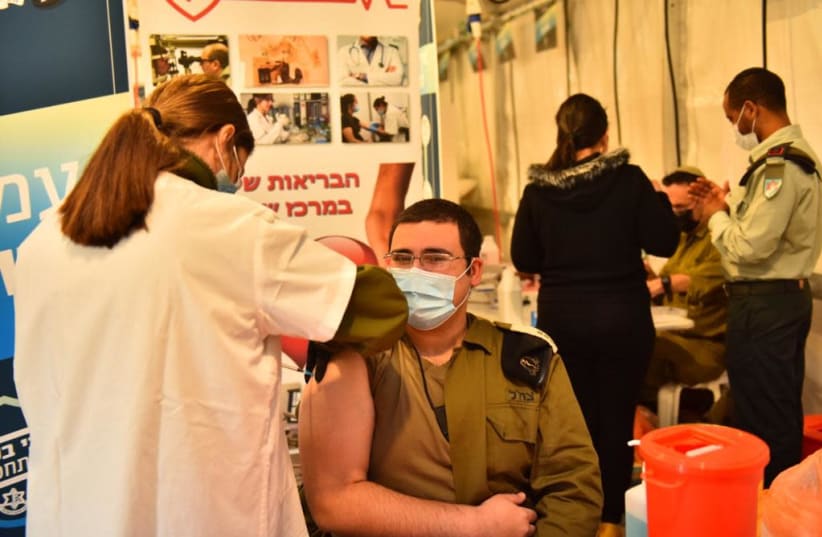In an interview with The Jerusalem Post, Malki said that the military has managed to use all its vaccines thanks to a broad range of steps taken to maximum efficiency of the vaccination drive.
This included setting up an advanced computer system that coordinates between the different military branches to allow soldiers to receive the vaccine outside their units; creating a smartphone app that let soldiers schedule a vaccination appointment; and maintaining a good, efficient and positive relationship with the Health Ministry, which is in charge of providing the vaccines.
“We talking here about an operation that is very complicated logistically,” Malki said. “There are tough restrictions when it comes to storing and moving the vaccines.
“This is why carrying out the operation – which includes understanding how many people arrive each day and week, to which geographic area and setting up enough facilities that will provide services to a satisfactory level – all of that led us to the main principle to be accurate at the expense of being quick. But that led us to a situation in which we didn’t throw out even a single vaccine dose,” he said.
The operation started eight weeks ago and was divided into four stages. The first stage included some 6,000 officers and soldiers from the military medical staff, soldiers with existing pre-conditions and the senior command.
In the second stage, the Logistics Department set up some 20 vaccination centers across the country and focused on combat units. In the third stage, the rest of the military – mainly the supporting units – received the vaccine.
Malki explained that while insisting on maintaining accuracy, the system they set up helped them to do it quickly and get the vast majority of the army vaccinated in nine weeks.
“We had a system that helped soldiers receive the vaccine close to them, regardless of where their unit resides,” he said. “For example, if you are in an armored battalion that is currently on exercise on the Golan Heights, but during a certain week you went down to a drill in Tze’elim, you could get the first shot down south, and the second one at Nafha when you’re back in the Golan,” he said.
“We also set up vaccination centers in bases near and in the West Bank – like in Arad for those who serve in the Judea Division – so soldiers could get the vaccine when they are on their way home, or when they return to their base. We managed to vaccinate all of those serving in the West Bank in a week,” he said.
The IDF is now entering the fourth stage, to vaccinate all of those who missed their opportunity to date, or refused in the past but have now changed their minds.
Malki said that by next week, some 85% of the IDF will be vaccinated. The IDF will also allow new draftees to receive the vaccine on the day they are inducted.
IDF stats indicate that in the past few days, the number of new daily coronavirus patients is decreasing.
The IDF presented last Wednesday its latest easing of restrictions for units where over 85% of personnel were vaccinated. Among these new instructions are the opening of gyms and synagogues.
